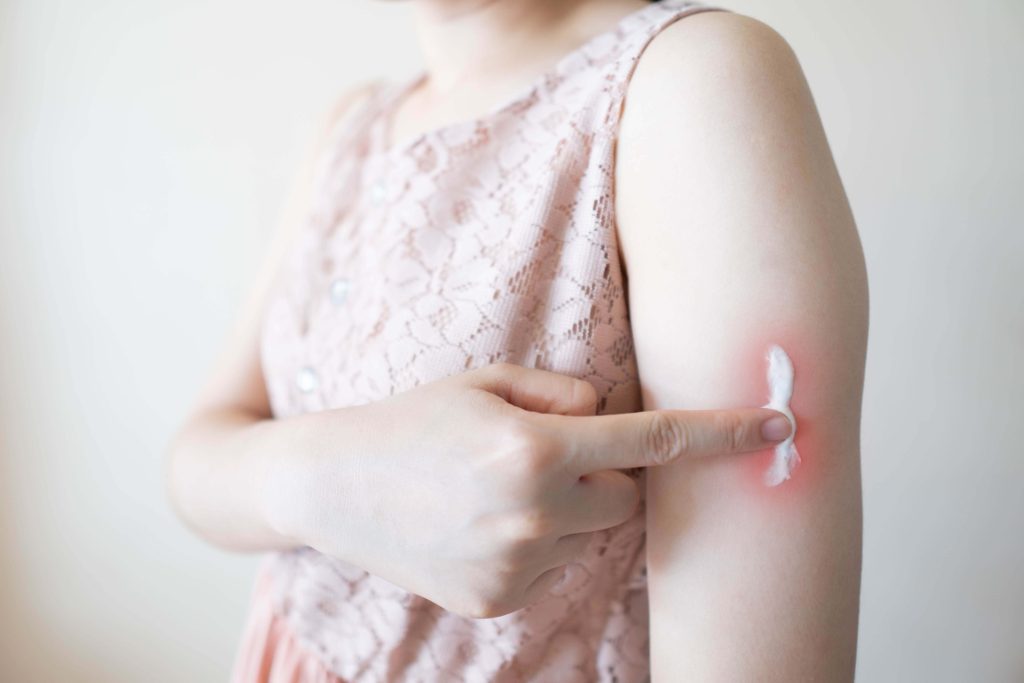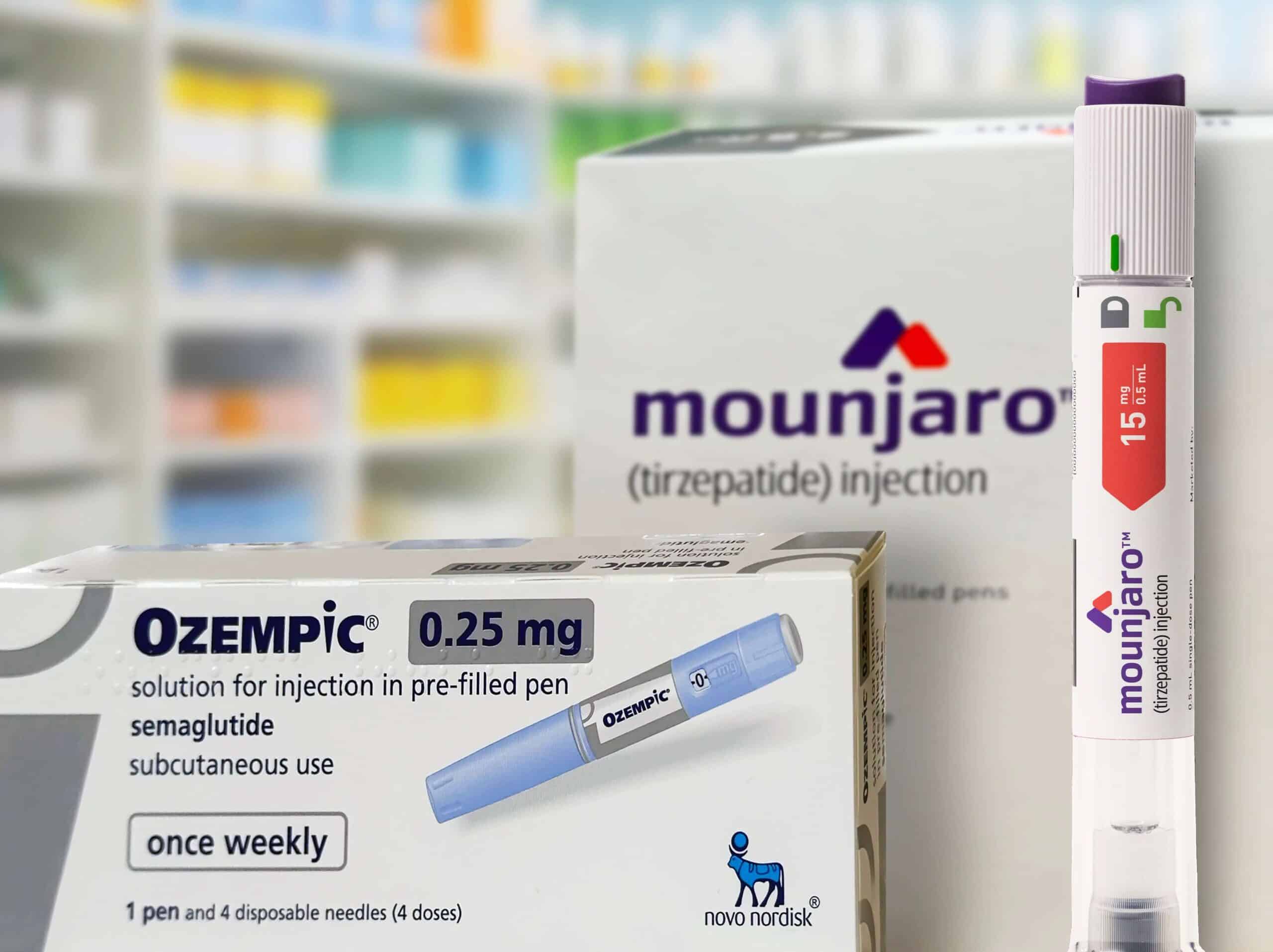What Causes Topical Steroid Withdrawal?
Understanding Topical Steroid Withdrawal
Topical steroid withdrawal (TSW), also known as Red Skin Syndrome or Steroid Addiction, is a condition that can arise after prolonged use of topical corticosteroids. These medications are often prescribed for conditions like eczema and psoriasis due to their anti-inflammatory properties. However, their long-term use can lead to dependency, and discontinuation may result in TSW.

Mechanism Behind Topical Steroid Withdrawal
Adaptation to Corticosteroids
The primary cause of TSW is the body’s adaptation to corticosteroids. When these medications are applied frequently, the skin begins to rely on them to manage inflammation. Over time, the skin’s natural ability to control inflammation diminishes. Upon stopping the steroid use, the skin struggles to cope, leading to withdrawal symptoms.
Skin’s Response to Withdrawal
The skin, accustomed to the external supply of steroids, goes into a reactive mode once the medication is stopped. This reaction manifests as intense inflammation and redness, often more severe than the original condition the steroids were treating. The body’s sudden need to adjust without the anti-inflammatory support it had grown reliant on is what drives these symptoms.
Factors Contributing to Topical Steroid Withdrawal
Potency and Duration of Steroid Use
Several factors can contribute to the onset of TSW. The potency and duration of steroid use are significant determinants. Higher potency steroids and longer usage periods increase the likelihood of withdrawal. For instance, strong steroids used over several years can cause a deeper dependency compared to mild steroids used for a shorter duration.
Frequency of Application
The frequency of application plays a critical role in TSW development. Daily or multiple times a day usage heightens the risk. Continuous application prevents the skin from performing its natural regulatory functions, leading to increased sensitivity and reliance on the medication.

Individual Susceptibility
Individual susceptibility also plays a role. Some people may have a genetic predisposition to developing TSW. Others may have underlying conditions or sensitivities that exacerbate their reaction to steroids. Factors such as age, overall skin health, and the presence of other skin conditions can influence the risk and severity of TSW.
Medications That Can Cause Topical Steroid Withdrawal
High-Potency Steroids
High-potency steroids are more likely to cause TSW due to their strong anti-inflammatory effects and deeper penetration into the skin. Examples include:
- Clobetasol Propionate (Clobex, Temovate): Often prescribed for severe eczema or psoriasis, this potent steroid can lead to significant dependency if used long-term.
- Betamethasone Dipropionate (Diprolene): Another high-potency steroid used for various inflammatory skin conditions, prone to causing withdrawal symptoms upon cessation.
Medium to Low-Potency Steroids
Even medium to low-potency steroids can cause TSW if used improperly or for extended periods. Examples include:
- Hydrocortisone (Cortaid, Locoid): Commonly available over-the-counter for mild skin irritations, hydrocortisone can still lead to withdrawal symptoms if used excessively.
- Triamcinolone Acetonide (Kenalog): A medium-potency steroid used for eczema and other dermatitis, capable of causing TSW with prolonged use.
Symptoms and Signs of Topical Steroid Withdrawal
Common Symptoms
Symptoms of TSW include intense redness, burning, stinging, and flaking of the skin. The skin may appear raw and feel extremely sensitive to touch. In some cases, the affected areas can swell and develop a bumpy texture. These symptoms often occur in areas where the steroid was most frequently applied.
Psychological Impact
The physical symptoms of TSW can be accompanied by psychological distress. The severe and often sudden onset of symptoms can lead to anxiety and depression. The appearance of the skin can affect self-esteem and social interactions, contributing to a sense of isolation and emotional strain.
Long-Term Effects
In some cases, TSW can lead to long-term skin changes. Chronic dryness, discoloration, and a persistent heightened sensitivity can occur. Understanding these potential outcomes is important for individuals considering the prolonged use of topical steroids.
Diagnosis of Topical Steroid Withdrawal
Clinical Evaluation
Diagnosing TSW typically involves a clinical evaluation by a dermatologist. The doctor will review the patient’s medical history, including the duration and potency of steroid use. They will also examine the skin’s condition and consider the timing of symptom onset in relation to steroid discontinuation.
Differential Diagnosis
Differential diagnosis is crucial to rule out other skin conditions that might mimic TSW. Conditions such as eczema flare-ups, allergic reactions, or infections need to be considered. This ensures that the appropriate treatment plan is devised.
Management and Treatment of Topical Steroid Withdrawal
Gradual Reduction of Steroid Use
Managing TSW involves a gradual reduction in steroid use. Abrupt cessation can worsen symptoms, so tapering the dosage allows the skin to slowly adapt and regain its natural regulatory functions. This process should be overseen by a healthcare professional to ensure it is done safely.
Supportive Skincare Regimen
A supportive skincare regimen is essential during TSW recovery. This includes using gentle, non-irritating cleansers and moisturizers to maintain skin hydration and barrier function. Avoiding products with harsh chemicals, fragrances, or allergens is important to prevent further irritation.
Non-Steroidal Treatments
Non-steroidal anti-inflammatory treatments can help alleviate symptoms. Options include topical calcineurin inhibitors, which reduce inflammation without the side effects associated with steroids. Other treatments, such as light therapy or systemic medications, might be considered for severe cases.
Lifestyle and Home Remedies
Lifestyle modifications and home remedies can also support recovery. Maintaining a healthy diet, staying hydrated, and avoiding triggers like stress and allergens can benefit the skin. Cool compresses and oatmeal baths may provide symptomatic relief.
Preventing Topical Steroid Withdrawal
Responsible Steroid Use
Prevention of TSW starts with responsible steroid use. This involves using the lowest effective dose for the shortest possible duration. Regular follow-ups with a healthcare provider can ensure that the treatment plan is effective and adjusted as needed.
Alternative Treatments
Exploring alternative treatments for chronic skin conditions can reduce reliance on steroids. Options such as emollients, barrier repair creams, and natural remedies might offer relief without the risks associated with steroids. Consulting with a dermatologist about these alternatives is advisable.
Case Studies and Patient Experiences
Real-Life Experiences
Hearing from individuals who have experienced TSW can provide valuable insights. Real-life stories highlight the challenges and triumphs of those who have navigated this condition. These narratives can offer hope and practical advice for others in similar situations.
Case Study 1: Sarah’s Journey
Sarah, a 34-year-old teacher, was prescribed Clobetasol Propionate for her severe eczema. After years of use, she decided to stop due to side effects. Within days, her skin flared up with intense redness and burning. It took her over a year of gradual steroid tapering, alongside supportive skincare and lifestyle changes, to see significant improvement.
Case Study 2: David’s Struggle
David, a 28-year-old engineer, used Hydrocortisone daily for his dermatitis. When he stopped, his skin became hypersensitive and developed a bumpy texture. Through a dermatologist-guided treatment plan involving non-steroidal creams and dietary changes, David’s skin slowly began to heal over several months.
Lessons Learned
Lessons learned from patient experiences emphasize the importance of awareness and education about TSW. Knowing the potential risks and signs of withdrawal can empower individuals to make informed decisions about their treatment options.
Research and Future Directions
Current Research
Current research into TSW is expanding our understanding of this condition. Studies are investigating the mechanisms behind steroid dependency and withdrawal, aiming to develop more effective treatment strategies. Research is also exploring the genetic and environmental factors that contribute to TSW.
Innovations in Treatment
Innovations in treatment are on the horizon. Advances in dermatology are leading to the development of new non-steroidal therapies that might offer safer alternatives. Continued research and clinical trials are essential to bring these new treatments to patients.


In conclusion, understanding the causes of topical steroid withdrawal is crucial for those using corticosteroids. Awareness and careful management can mitigate the risks and promote healthier skin recovery. Responsible use of steroids, exploring alternative treatments, and staying informed about the latest research are key steps in preventing and managing TSW. For individuals experiencing TSW, seeking support from healthcare providers and connecting with others who have faced similar challenges can make a significant difference in the journey to recovery.
Published: June 23, 2024
Last Updated: June 02, 2025

Published: June 30, 2025
Do Semaglutide (Ozempic®/Wegovy®) or Tirzepatide (Mounjaro®/Zepbound®) Reduce Alcohol Cravings?
GLP-1–based injectables like Semaglutide (Ozempic®/ Wegovy®) or Tirzepatide (Mounjaro®/ Zepbound®) changed obesity and diabetes care almost overnight. Alongside weight loss, thousands of patients began reporting a subtler effect: “I just don’t want that nightly glass of wine anymore.” Such feedback—spread across Reddit, TikTok, and clinic waiting rooms—now drive genuine scientific inquiry. If GLP-1 agonists like […]
Read more
Published: June 01, 2025
Honoring Men’s Mental Health: A June Reflection and Path to Wellness
Each June, we shine a spotlight on Men’s Mental Health Month—a dedicated time to recognize the unique challenges men face, break down stigmas, and foster open conversations. At Lifescape Recovery, we believe that mental health is just as critical for men as it is for anyone else. Yet societal expectations around “toughness” and self-reliance often […]
Read more
Published: May 23, 2025
Intensive Outpatient Program (IOP):15 FAQs
Navigating the world of mental health and addiction treatment can feel overwhelming. If you’re considering an Intensive Outpatient Program (IOP), you likely have questions about what it entails, who it’s for, and how it works. Below, we’ve compiled the most frequently asked questions—along with clear, concise answers—to help you understand IOP and determine if it’s […]
Read more
